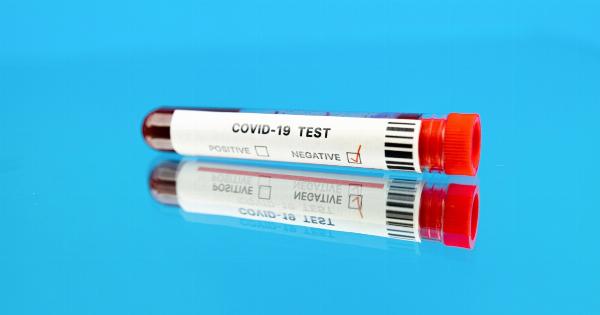The Middle East respiratory syndrome (MERS) has been sweeping through Saudi Arabia, causing significant concern among health officials.
The latest reports indicate that the number of fatalities in the country’s MERS epidemic has reached 117, highlighting the urgent need for proactive measures to contain the outbreak.
What is MERS?
MERS is a viral respiratory illness caused by a coronavirus called Middle East respiratory syndrome coronavirus (MERS-CoV).
It was first identified in Saudi Arabia in 2012 and since then, outbreaks have occurred sporadically in several countries, mainly in the Middle East.
Transmission and Symptoms
MERS primarily spreads from an infected individual to others through respiratory droplets produced when they cough or sneeze. Close contact, such as caring for or living with an infected person, can increase the risk of transmission.
It is important to note that the virus does not spread easily in community settings.
The symptoms of MERS can range from mild to severe, including fever, cough, shortness of breath, and in severe cases, pneumonia and organ failure.
Individuals with underlying medical conditions such as diabetes, kidney disease, or chronic lung disease are more susceptible to MERS-related complications.
Current Situation in Saudi Arabia
Saudi Arabia has been the epicenter of MERS outbreaks, with the majority of cases reported in the country. The recent spike in fatalities brings the total number of deaths to 117, highlighting the need for urgent action.
The Saudi Arabian government has been working closely with international health organizations to control the spread of the virus and provide effective medical care to those affected.
The significant number of fatalities underscores the criticality of implementing comprehensive measures to prevent the further escalation of the outbreak.
These measures include public health campaigns to raise awareness about MERS, enhanced surveillance and monitoring of suspected cases, and improving healthcare infrastructure and resources to ensure prompt diagnosis and treatment.
Efforts to Control the Outbreak
The Saudi Arabian Ministry of Health has been actively engaged in various initiatives aimed at controlling and preventing the spread of MERS. These efforts include:.
1. Public Awareness Campaigns
The Ministry of Health has launched extensive awareness campaigns to educate the public about the symptoms of MERS, modes of transmission, and preventive measures.
These campaigns utilize various mediums such as television, radio, and social media to reach a wide audience and encourage proactive actions.
2. Strengthening Infection Control Measures
Hospitals and healthcare facilities have implemented stringent infection control measures to minimize the risk of MERS transmission.
This includes proper isolation of suspected cases, strict adherence to hand hygiene protocols, and ensuring the appropriate use of personal protective equipment by healthcare professionals.
3. Surveillance and Contact Tracing
The Ministry of Health has established a robust surveillance system to detect suspected cases of MERS promptly.
Contact tracing is conducted to identify individuals who have been in close contact with confirmed cases and provide them with necessary medical care and advice to prevent further transmission.
4. Research and Vaccine Development
Ongoing research is being conducted to better understand the MERS virus and develop effective vaccines and antiviral treatments.
Collaborative efforts between Saudi Arabian researchers and international scientists have been instrumental in advancing our knowledge of the virus and exploring potential preventive and therapeutic solutions.
5. Travel Advisory and Restriction
The Saudi government has issued travel advisories cautioning its citizens and residents about the risks associated with travel to countries experiencing MERS outbreaks.
Additionally, stringent screening measures have been implemented at airports and entry points to identify individuals with symptoms and take appropriate action.
Concluding Remarks
The alarming number of fatalities in Saudi Arabia’s MERS epidemic highlights the urgent need for comprehensive measures to control the outbreak.
The Saudi Arabian government has been actively working towards containing the virus through public awareness campaigns, strengthening infection control practices, surveillance, and collaboration with international researchers.
Efforts to develop effective vaccines and antiviral treatments are underway, and it is crucial to continue supporting and funding these research initiatives.
With collective efforts and a proactive approach, it is possible to overcome the challenges posed by MERS and prevent further loss of lives.




























